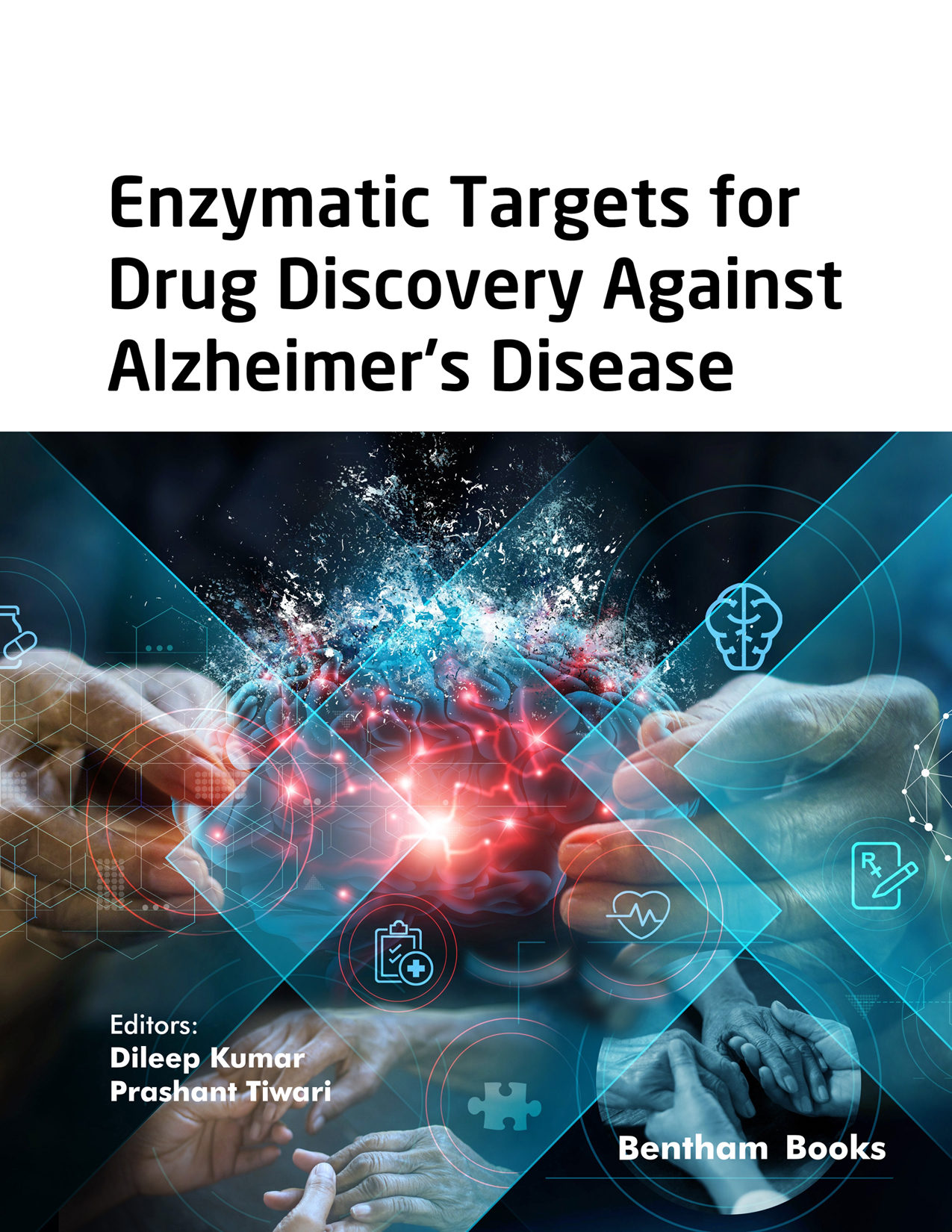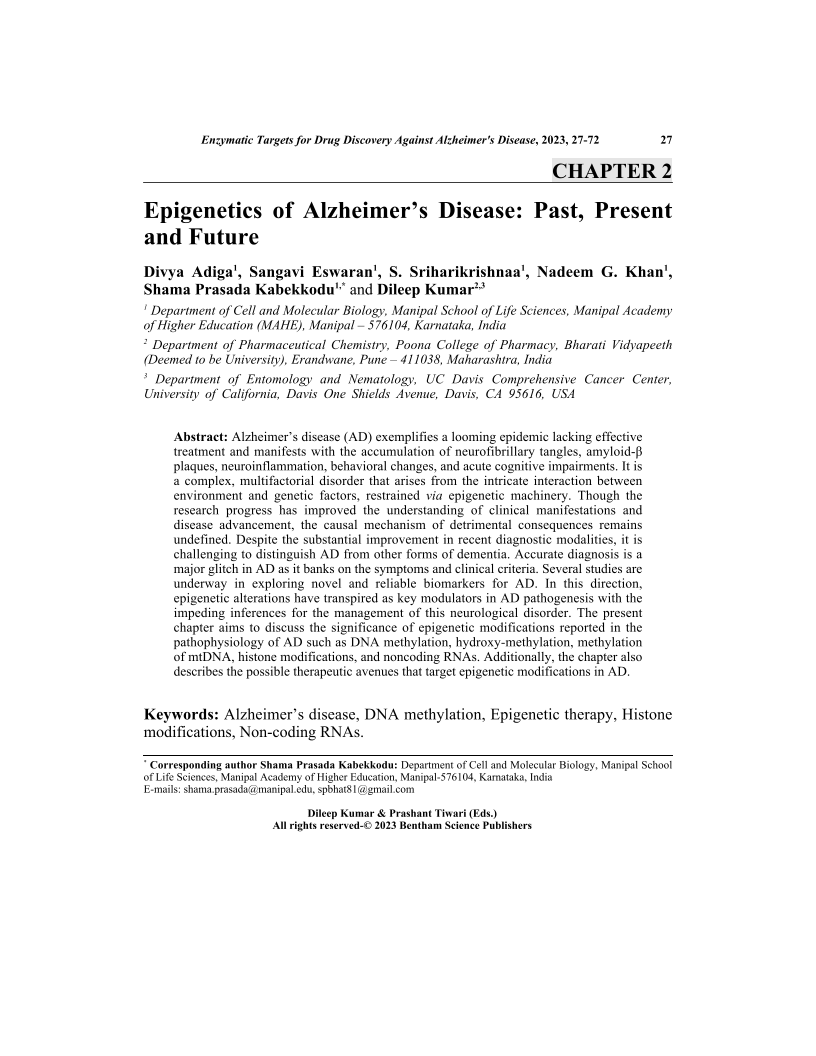Epigenetics of Alzheimers Disease: Past, Present and Future

- Authors: Divya Adiga1, Sangavi Eswaran2, S. Sriharikrishnaa3, Nadeem G. Khan4, Shama Prasada Kabekkodu5, Dileep Kumar6
-
View Affiliations Hide Affiliations1 Department of Cell and Molecular Biology, Manipal School of Life Sciences, Manipal Academy of Higher Education (MAHE), Manipal 576104, Karnataka India 2 Department of Cell and Molecular Biology, Manipal School of Life Sciences, Manipal Academy of Higher Education (MAHE), Manipal 576104, Karnataka India 3 Department of Cell and Molecular Biology, Manipal School of Life Sciences, Manipal Academy of Higher Education (MAHE), Manipal 576104, Karnataka India 4 Department of Cell and Molecular Biology, Manipal School of Life Sciences, Manipal Academy of Higher Education (MAHE), Manipal 576104, Karnataka India 5 Department of Cell and Molecular Biology, Manipal School of Life Sciences, Manipal Academy of Higher Education (MAHE), Manipal 576104, Karnataka India 6 Department of Pharmaceutical Chemistry, Poona College of Pharmacy, Bharati Vidyapeeth (Deemed to be University), Erandwane, Pune 411038, Maharashtra India
- Source: Enzymatic Targets for Drug Discovery Against Alzheimer's Disease , pp 27-72
- Publication Date: December 2023
- Language: English
Epigenetics of Alzheimers Disease: Past, Present and Future, Page 1 of 1
< Previous page | Next page > /docserver/preview/fulltext/9789815136142/chapter2-1.gif
Alzheimers disease (AD) exemplifies a looming epidemic lacking effective treatment and manifests with the accumulation of neurofibrillary tangles, amyloid-β plaques, neuroinflammation, behavioral changes, and acute cognitive impairments. It is a complex, multifactorial disorder that arises from the intricate interaction between environment and genetic factors, restrained via epigenetic machinery. Though the research progress has improved the understanding of clinical manifestations and disease advancement, the causal mechanism of detrimental consequences remains undefined. Despite the substantial improvement in recent diagnostic modalities, it is challenging to distinguish AD from other forms of dementia. Accurate diagnosis is a major glitch in AD as it banks on the symptoms and clinical criteria. Several studies are underway in exploring novel and reliable biomarkers for AD. In this direction, epigenetic alterations have transpired as key modulators in AD pathogenesis with the impeding inferences for the management of this neurological disorder. The present chapter aims to discuss the significance of epigenetic modifications reported in the pathophysiology of AD such as DNA methylation, hydroxy-methylation, methylation of mtDNA, histone modifications, and noncoding RNAs. Additionally, the chapter also describes the possible therapeutic avenues that target epigenetic modifications in AD. <br>
-
From This Site
/content/books/9789815136142.chapter2dcterms_subject,pub_keyword-contentType:Journal -contentType:Figure -contentType:Table -contentType:SupplementaryData105

